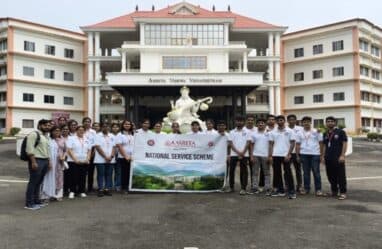10 Essential Tips for Writing successful dissertation

Struggling for Dissertation Success? Discover the 10 Essential Tips for Writing Successful Dissertation. A dissertation is a challenging yet rewarding intellectual endeavour. You explore undiscovered seas to advance your profession. This academic journey will bring hurdles, self-doubt, and perhaps exciting breakthroughs.


Your dissertation is a sample of your research, critical thinking, and devotion, not merely a program obligation. However, dissertation success is sometimes questionable. We provide eight vital suggestions. Our site will reveal the undiscovered secrets to producing a good dissertation. These tips will make your trip easier and lead to academic success. structured approach.
10 Essential Tips for Writing Successful Dissertation
In this comprehensive guide, we’ll go into detail about 10 crucial suggestions for writing a successful dissertation and then offer additional general guidance for creating a top-notch thesis.
1. Make a Schedule: Embarking on the journey of writing a dissertation necessitates a well-thought-out plan. Establish deadlines for each chapter or section, and create a writing routine that aligns with your most productive hours. By setting clear milestones, you’ll maintain a sense of progress and stay on track.

2. Just Start Writing: Procrastination is a common hurdle for many students. The key to overcoming it is to start writing early, even if your ideas are not fully developed. Writing can be a catalyst for clarifying your thoughts and refining your arguments.
3. The first draft is not the final draft. Understand that your initial draft does not need to be flawless. Perfection is not the goal at this stage. The first draft is a canvas on which you can later fine-tune your work. Embrace the idea of revision and rewriting as integral parts of the writing process.
4. Research Papers Aligned with Objectives: As you embark on your dissertation, craft research papers that are in sync with your objectives. These papers should explore specific aspects of your research question, hypothesis, or methodology. Each paper should contribute to your overall understanding of the subject and generate valuable insights that will enrich your dissertation. By conducting research papers that align with your objectives, you’ll gather a strong foundation of knowledge and data for your final dissertation.

5. Be Flexible: Writer’s block and missed deadlines are inevitable challenges. When faced with such obstacles, adjust your schedule as needed and keep writing. Setting early deadlines provides a safety net, allowing you to absorb potential delays without jeopardizing your final submission.

6. Write the Introductions Last: The introduction often poses a significant hurdle as it requires a comprehensive understanding of your entire work. Instead of getting stuck, write the body of your dissertation first. Once you’ve completed the main content, you’ll be better equipped to craft a compelling introduction that accurately reflects the scope and purpose of your research.
7. Progress steadily: If you encounter a challenging section, consider temporarily setting it aside and proceeding to more manageable parts of your dissertation. This approach ensures a continuous workflow, making difficult segments appear less intimidating when you return to them.

8. Seek Early Guidance: Collaborate with your dissertation advisor and peers to obtain feedback on your work at an early stage. This proactive step can be a game-changer, helping you swiftly identify and resolve issues, preventing them from escalating into major roadblocks. Regular interactions with your academic network are invaluable during the dissertation process.
9. Get Feedback Early: Sharing your work with your supervisor and colleagues can be a game-changer. Early feedback helps identify and address issues promptly, preventing them from snowballing into major problems. Regular communication with your academic network is an essential part of the dissertation process.
10. In-depth Literature Review: A comprehensive and meticulous literature review is the bedrock of your dissertation. Dive deep into the existing research on your topic, covering all relevant sources. Analyze and synthesize the information, highlighting gaps or areas where your research can contribute. Ensure that your literature review is structured logically, demonstrating a clear understanding of the existing body of knowledge in your field.
Additional General Advice for Writing a High-Quality Dissertation
The journey of writing a high-quality dissertation is not just about following the tips and secrets; it also involves a deeper understanding of the principles that underpin scholarly work. To truly excel in your dissertation, consider these additional insights:

Choosing a Topic That Ignites Passion: The journey of a dissertation is long, and your passion for the subject matter can be your guiding light. When you’re genuinely interested in your topic, your enthusiasm will shine through in your work, making the writing process a joy rather than a chore.
Crafting a Precise Research Question: The heart of your dissertation lies in your research question. It should be well-defined, specific, and laser-focused. A clear research question sets the stage for your entire dissertation and ensures that you don’t wander into irrelevant territories.
Mapping Out the Key Issues: To embark on a successful dissertation, outline the main issues you’ll address. This showcases your comprehensive grasp of the subject matter and provides a clear roadmap for both you and your readers.
Embracing the Wisdom of Credible Sources: Your research should be a reflection of the best available knowledge in your field. Ensure that your sources are not only relevant but also credible. Draw from reputable libraries, online repositories, and scholarly works to build a robust foundation for your research.
Balancing Perspectives: A high-quality dissertation involves a balanced examination of evidence and viewpoints. Avoid tunnel vision by considering a range of perspectives. A well-rounded approach will enrich your work and demonstrate your comprehensive understanding of the subject.
Anchoring with a Strong Thesis Statement: Your thesis statement is the compass that guides your research. Craft it as a succinct and powerful summary of your research’s main point. It anchors your work, keeping it on course.
Structuring with Logic and Precision: Follow a well-organized structure for your dissertation. Typically, this includes a research proposal, introduction, literature review, methodology, results, discussions, and conclusion. Logical organization enhances the readability and comprehension of your work.

Embracing Clarity in Writing: Academic writing values clarity over verbosity. Ensure that your ideas are communicated effectively and concisely. Strive for a writing style that is not just informative but also engaging.
Polishing to Perfection: No matter how compelling your argument, errors can tarnish the brilliance of your work. Dedicate time to meticulous proofreading to eliminate typos, grammatical mistakes, and formatting issues.
Welcoming Fresh Perspectives: Before the final submission, reach out to a supervisor, a friend, or a family member for a review. Fresh eyes can spot areas for improvement and add an extra layer of refinement to your dissertation.
With these additional principles, you’re not just following a formula for dissertation success but embracing the essence of scholarly pursuit. Your dissertation is an opportunity to contribute to the collective knowledge of your field, and by internalizing these insights, you’ll be well-prepared to make your mark in the academic world.
Conclusion
Dissertations demonstrate your abilities to study, analyze, and explain complicated concepts. Our 10 must-know guidelines should have clarified the process and provided a clear path. Remember, every good dissertation begins with one word, page, and step. This road requires perseverance, endurance, and intellectual progress.
With these tips, you can overcome obstacles and write a good dissertation. Academics will eagerly await your study. So write down your views, gather your facts, and begin this academic trip. The gem of a good dissertation lies nearby. Happy writing!
Also, read Is a PhD Possible After an Online MBA?






